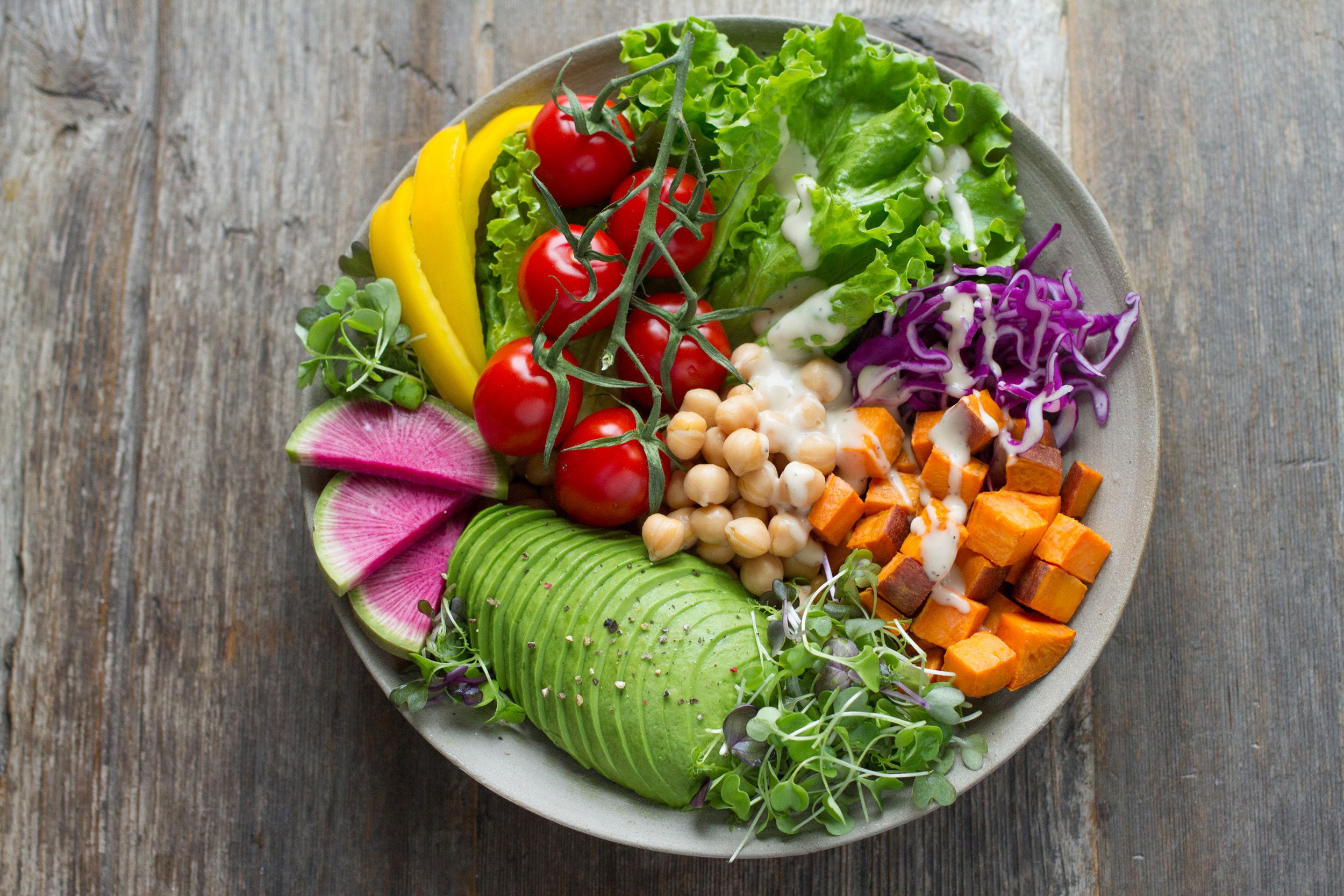Benefits of Fresh Salads
Fresh, simple, and dietetic salads offer numerous benefits for your health and well-being. Packed with an assortment of colorful vegetables, fruits, and other wholesome ingredients, these salads provide a wide range of nutrients while being low in calories. Here are some of the benefits of incorporating fresh, simple, and dietetic salads into your diet:
Abundance of Nutrients:
Salads are an excellent way to consume a variety of essential vitamins, minerals, and antioxidants. Fresh vegetables and fruits are rich in vitamins A, C, and K, along with minerals like potassium and folate. These nutrients play crucial roles in maintaining a healthy immune system, promoting optimal organ function, and supporting overall well-being.
Weight Management:
Salads are generally low in calories but high in fiber and water content, making them an ideal addition to a weight management plan. The high fiber content helps you feel fuller for longer, reducing the likelihood of overeating and aiding in portion control. By incorporating salads into your meals, you can enjoy a satisfying and nutritious dish without consuming excessive calories.
Increased Hydration:
Fresh salads often consist of ingredients like cucumbers, lettuce, tomatoes, and watermelon, which have high water content. These hydrating ingredients help maintain your body's fluid balance, promoting proper hydration. Staying adequately hydrated is essential for various bodily functions, including digestion, circulation, and temperature regulation.

Digestive Health:
Salads are an excellent source of dietary fiber, which is crucial for maintaining a healthy digestive system. Fiber aids in preventing constipation and promoting regular bowel movements. It also supports the growth of beneficial gut bacteria, improving overall gut health and reducing the risk of digestive disorders.
Heart Health:
Many components of salads, such as leafy greens, avocados, and olive oil, are known for their heart-healthy properties. These ingredients are rich in monounsaturated fats, which help lower "bad" LDL cholesterol levels, reducing the risk of heart disease. Additionally, the abundance of antioxidants in salads may contribute to improved cardiovascular health by reducing inflammation and oxidative stress.
Improved Energy and Mood:
Fresh salads provide a balanced combination of carbohydrates, proteins, and healthy fats. These nutrients are essential for sustained energy levels and stable blood sugar control throughout the day. Moreover, salads rich in omega-3 fatty acids (found in ingredients like walnuts and flaxseeds) can positively impact brain health, potentially improving mood and cognitive function.
Increased Vegetable Intake:
Salads offer an excellent opportunity to increase your vegetable intake. By incorporating a wide range of vegetables, you can benefit from the unique array of vitamins, minerals, and phytochemicals they provide. Additionally, consuming a diverse selection of vegetables supports overall dietary variety, ensuring you obtain a broad spectrum of nutrients.
Antioxidant Powerhouse:
Many salad ingredients, such as berries, spinach, and kale, are rich in antioxidants. Antioxidants help protect your body against the damaging effects of free radicals, which can contribute to chronic diseases and premature aging. Regularly consuming antioxidant-rich salads can help boost your body's defenses and promote long-term health.
Customization and Creativity:
Salads offer endless possibilities for customization and creativity. You can experiment with various vegetables, fruits, proteins, whole grains, and dressings to create exciting flavor combinations. This versatility ensures that salads never become monotonous and allows you to cater to your personal taste preferences and dietary needs.
Improved Overall Dietary Pattern:
Incorporating fresh, simple, and dietetic salads into your regular meals encourages a healthier overall dietary pattern. By prioritizing nutrient-dense foods, you may naturally reduce your intake of processed and calorie-dense options. This shift can have a positive impact on weight management, energy levels, and overall nutritional status.

Skin Health:
The abundance of vitamins and antioxidants in fresh salads can contribute to improved skin health. Nutrients like vitamin C promote collagen production, which helps maintain the elasticity and firmness of the skin. Antioxidants protect against oxidative stress and help combat the signs of aging, such as wrinkles and dullness.
Improved Eye Health:
Certain salad ingredients, including leafy greens, carrots, and bell peppers, contain nutrients like lutein and zeaxanthin that are beneficial for eye health. These compounds have been linked to a reduced risk of age-related macular degeneration and cataracts, helping to maintain optimal vision as you age.
Enhanced Immune Function:
Fresh salads provide a range of immune-boosting nutrients, including vitamin C, beta-carotene, and zinc. These nutrients support the proper functioning of the immune system, helping to defend against infections, viruses, and other illnesses. Regularly consuming salads can help strengthen your body's natural defense mechanisms.
Reduced Risk of Chronic Diseases:
A diet rich in vegetables and fruits, such as those found in fresh salads, has been associated with a reduced risk of chronic diseases, including heart disease, diabetes, and certain types of cancer. The combination of antioxidants, fiber, and various bioactive compounds found in salads contributes to their protective effects on long-term health.
Sustainable and Environmentally Friendly:
Fresh salads often incorporate locally sourced and seasonal produce, which supports sustainable agriculture practices and reduces the carbon footprint associated with long-distance transportation. By choosing ingredients for your salads that are grown sustainably, you contribute to a healthier environment.

In conclusion:
It's important to note that the specific benefits of fresh, simple, and dietetic salads can vary depending on the ingredients you choose and the overall balance of your diet. It's recommended to include a diverse range of vegetables, fruits, whole grains, lean proteins, and healthy fats to maximize the nutritional benefits of your salads. Additionally, be mindful of portion sizes and choose dressings and toppings that are low in added sugars and unhealthy fats to keep your salad as nutritious as possible.
If you want to enjoy the benefits of the best vegetables, check out the diet recommended by us, a diet that aims to enjoy all the benefits of the vegetables, without spending a lot of time consuming them... everything is based on only natural components of plants that will make you feel better, lose weight and look Better!!
Here is one short way to prepare a quick, nutritious and healthy lunch:
